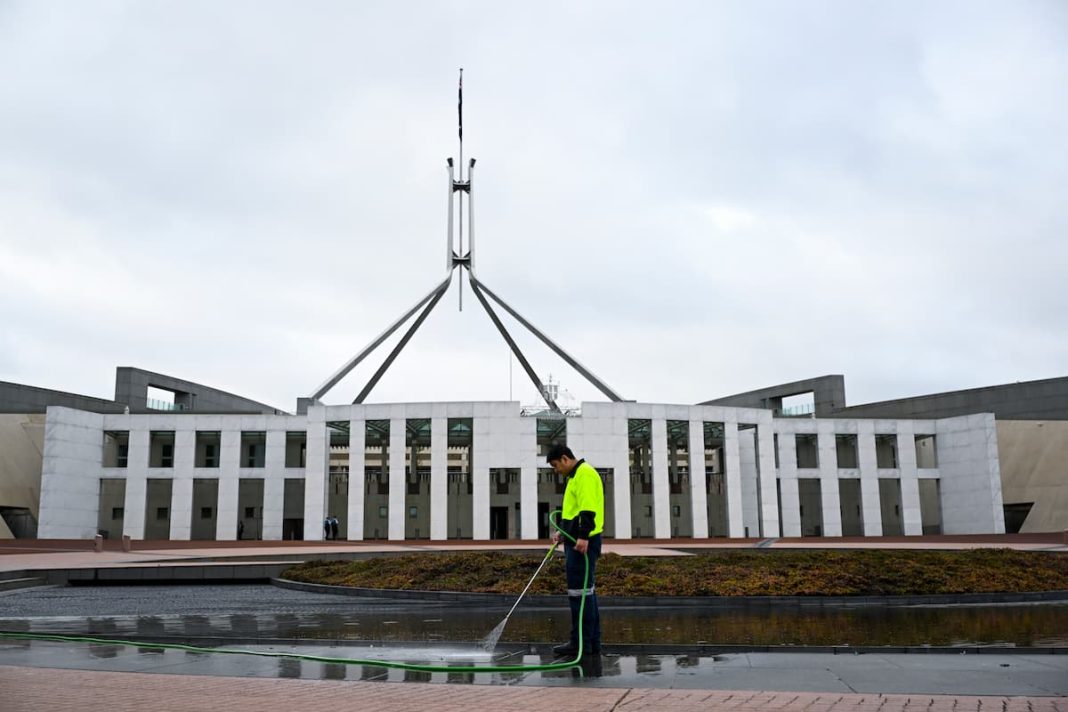Federal politicians could be slapped with thousands of dollars worth of fines under tough measures to stamp out misconduct, prompting calls for party leadership to set the standard of behaviour.
Laws setting up an Independent Parliamentary Standards Commission were introduced to the House of Representatives on Wednesday, with the body being a recommendation from a landmark report into the culture of the parliamentary workplace.
The standards commission will have the power to conduct workplace investigations and impose sanctions under behaviour codes for parliamentarians, their staff and other people who work in federal parliament.
Sanctions could include a fine of between two to five per cent of the base salary of an MP or senator, or suspension from parliament for a period of time.
A five per cent fine for a backbencher on the lowest parliamentary salary would be worth more than $11,000.
Minister for Finance and Women Katy Gallagher said the independent watchdog will make reports to the privileges committee, and rejected a suggestion the process would act as a protection racket.
“Often members are very senior members of respective political parties. They deal with difficult matters all the time and they haven’t traditionally operated in a partisan way at all,” she said.
“We believe the privileges committee is the right place for, you know, such a senior body to consider a report from the (independent commission), and then they will have to make a decision on that, and report to the parliament.”
Speaking alongside a group of independents calling for workplace culture to improve, Warringah MP Zali Steggall said better standards can only be modelled by the leadership.
“All those MPs take their cue from their leaders. They are elected leaders of their parties, from David Littleproud as the leader of the Nationals, Peter Dutton, leader of the Liberal Party, Anthony Albanese the leader of the Labor Party.
“Their behaviour matters, their words matter. What they do sets the standard for their followers.”
Referencing a campaign targeting violence against women, Mackellar MP Sophie Scamps said there needed to be a “stop it at the top campaign” to model the correct behaviour, which started with respect.
North Sydney MP Kylea Tink said the idea that Canberra operated in a “bubble” did not excuse poor behaviour.
“What’s happening in the chamber and what’s happening in this building is not banter … it cannot be justified on the basis that the Westminster system by its nature, is adversarial.
“I’m told I need to toughen up. I’m pretty tough … and I’m telling you, this sort of behaviour is unprofessional and it does not do justice to the nations that we are.”
The commission was recommended as part of a 2021 report carried out by the Australian Human Rights Commission into the workplace culture of Parliament House.
Assistant Public Service Minister Patrick Gorman said the reforms would allow for parliament to serve as a model workplace.
“These workplaces should uphold the standing of the parliament as a worthy reflection of the community,” he told parliament.
The government has said it hopes for the commission to be set up by the beginning of October.
Nationals senator Matt Canavan told Nine’s Today program the name and shame powers would “encourage a whole lot of frivolous and vexatious complaints” to try and take down political opponents.
The draft behaviour codes were endorsed in principle in 2023 and will be formally adopted once the bill passes.
By Andrew Brown and Tess Ikonomou in Canberra



